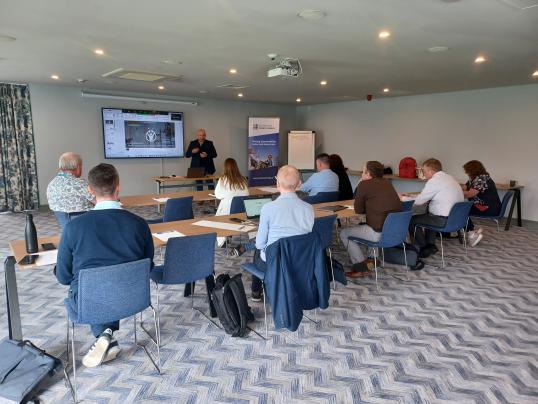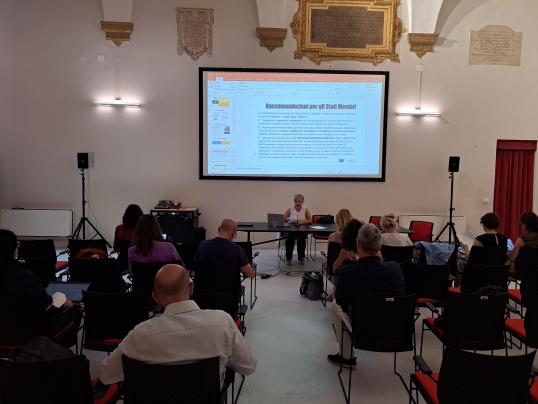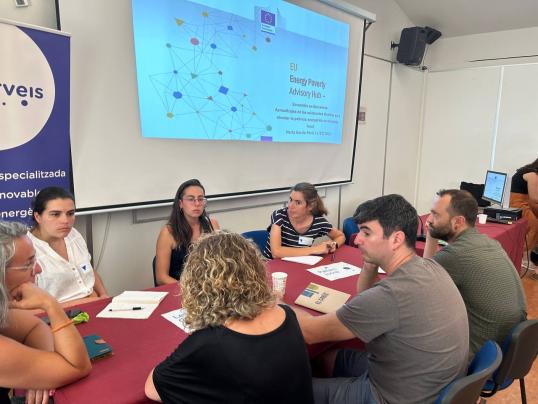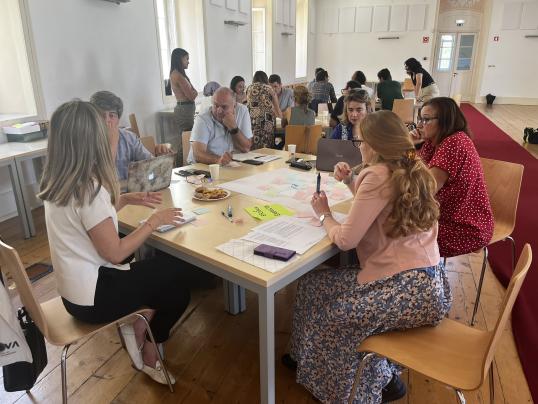Millions of Europeans are still struggling to access and afford basic energy services that are crucial for their well-being and daily lives despite the national and local governments taking serious steps to combat energy poverty. The Energy Poverty Advisory Hub (EPAH) organised seven national events between May and July 2023 to discuss the recent state of energy poverty and hear from local representatives what are the most pressing issues and their suggestions for the future. The results were shared during the European Economic and Social Committee conference on 19 July and during the EPAH lunch talk on 20 July.
Participants from local governments, civil society, regional and national energy agencies, energy cooperatives and academia among others gathered in Croatia, Hungary, Ireland, Italy, Poland, Portugal and Spain to exchange on questions such as: What actions, tools, or support are crucial at the local level to effectively address energy poverty? What are the primary challenges that hinder efforts? What game-changing policy maneuvers could unlock a brighter future?
In Croatia, the event was organised by DOOR. Lack of national support, incentive and priortitisation of the issue are some of the main challenges identified by the participants. Some interesting policy recommendations include the suggestion for investment in the education of stakeholders, targeted empowerment of citizens and the development of comprehensive publicly funded scheme.
In Ireland, the event was organised by the South East Energy Agency. Energy poverty is a pressing issue in Ireland right now with the Economic and Social Research Institute (ESRI) estimating it stands at 29% of households as of 2023. Some of the key issues discussed include improvements needed in communications from governing bodies, clarity on the grants available to households and improvements to access these grants, and policy changes needed to drive forward a transition. Attendees reported successes in linking relieving energy poverty to health benefits and in providing rural areas with a local champion to assist them with grant applications.
In Hungary, the event was organised by Climate Alliance Hungary. Participants stretched out that the lack of financial resources and adequate advisory support for residents are some of the pressing issues in the country. One-stop-shops are mentioned in the context of Hungary as part of the solutions together with municipal support for residential renovations.
In Italy, the event was organised by AISFOR. The discussion focused mostly on solutions and policy ideas. Participants proposed here too the establishment of more one-stop-shops, the integration of different operators in the local action, the implementation of building retrofit interventions and finally, the need to map stakeholders and actions implemented at local level. Systemization of incentives and economic support mechanisms, gender mainstreaming and empowerment of local authorities as key stakeholders was some of the policy ideas that were brought up.
In Spain, the event was organized by Associació Ecoserveis. Participants stretched that at the local level lack of technical, human & economic resources is a main pressing challenge together with technical knowledge, training and data. Complex procedures and difficult-to-fulfill requirements to access aid impose additional challenges. In all levels of governance, the lack of regulatory framework in the EU and of transversal coordination among stakeholders was identified as the main challenge. The solutions proposed include increased municipal resources and staff support, personalized attention through energy offices, strategic vision, coordination among stakeholders, simplified aid procedures for community involvement (incl. renewable energy communities) and capacity building resources among others.
In Poland, the event was organised by the Association of Municipalities Polish Network "Energie Cités" (PNEC). Participants stressed out the impact of the increased cost of living for several vulnerable groups, for example single mother with lower than average incomes, resulting in increased energy poverty situation in the country. The lack of national support and funding possibilities and the incomplete legislation on energy communities were identified as the main challenges. Some of the solutions that participants reflected include simplifying the programmes for local governments and clearly defining and improving the visibility of the regulatory framework for action.
In Portugal, the event was organised by Nova School of Science and Technology. Participants focused on solutions and policy ideas. Some key elements rely on creating the conditions for citizen participation, as well as ensuring mediation between the public and private sectors to guarantee better access to information and opportunities. Among interesting policy ideas, there are recommendations for empowering citizens through energy literacy, but also by involving them more in policy implementation and developing more guided and personalised approach.
It is no surprise that many of the challenges and solutions identified are evidently common among different countries. The Energy Poverty Advisory Hub is reflecting on the input from the national events with the aim to continue strengthening the local governments to take effective action in the battle against energy poverty. You can find the extended input from the national events in the presentation.
Details
- Publication date
- 31 July 2023
- Author
- Directorate-General for Energy




